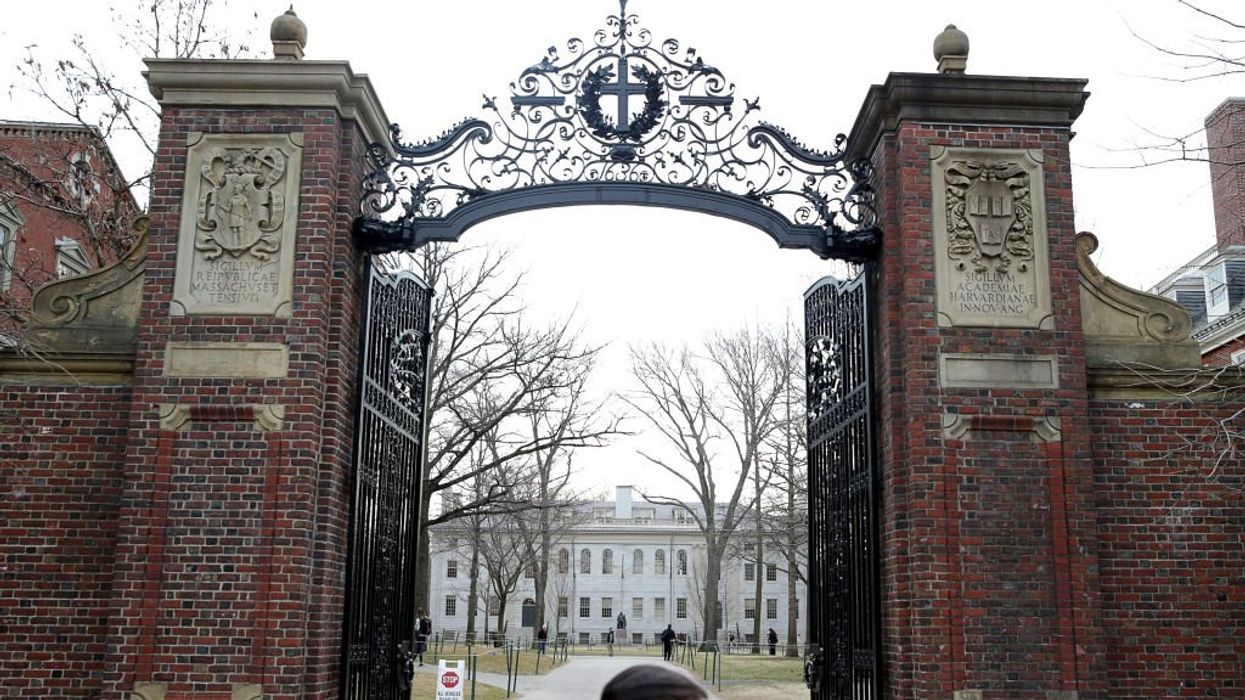GLENN: Johnnie Moore, good friend of the program, and the author of the book The Martyr's Oath, joins us now.
He is -- he is the guy who provided the inspiration to start the Nazarene Fund, and we welcome him to the program. Hi, Johnnie, how are you?
JOHNNIE: Hey, Glenn, I'm good. Good to hear your voice.
GLENN: So I don't know if you saw this on CNN yesterday, but CNN is starting a series now. They've been doing an investigation for a year, and they found out that slaves are still being sold in the Middle East. They didn't -- they didn't touch on the Christian slaves. They just touched on the -- the slaves in Libya. But I'm hoping that they will find the -- the -- the enormity of the problem soon, that it's not just happening in Libya.
JOHNNIE: Yeah. No. The situation has changed. But it hasn't improved. You know, ISIS taught these terrorists all around the world, in different places, new brutality. New techniques. And it persists. It's not what we were seeing. You know, the beheading of Christians on live television. Now it's back in the shadows.
But in Nigeria alone, Boko Haram, which pledges its allegiance to ISIS -- I mean, they killed more Christians last year than ISIS did in Syria. I mean, this is still a very, very intense, intense situation. Not to mention, you know, these communities still need to be rebuilt.
And, Glenn, I got to tell you, I was thinking really, really small, until I got on your radio program, and, you know, because of the Nazarene fund and your vision and your voice, I mean, a lot of people were helped. But we can't let up now. There's a lot of work that needs to be done.
GLENN: So Johnnie, you went over -- and this is kind of what your book is about, you went over with kind of a comfortable, Christian attitude -- an American, Christian attitude. And you met these people who are living -- we are seeing first century kind of persecution of Christians. They are now the most persecuted people on earth. And nobody is -- nobody is even talking about it.
And you saw it firsthand. And it kind of shook you to your core. Did it not?
JOHNNIE: No, it changed me. I totally changed my lifestyle. I changed my job. I changed how I was investing my time. I could not not have a good answer to this question, you know, what was I doing when this was happening in history?
And, you know, with this latest book, The Martyr's Oath, you know, we went around to 30 different countries, sent research teams everywhere to document the firsthand accounts of persecution. And I was even surprised at what was happening in countries I barely even knew anything about.
And, you know, then, Glenn, we have allies like Turkey. You know, Turkey is a country where last year the director of religious affairs, appointed an imam to the Hagia Sophia.
The Hagia Sophia was for a thousand years, the most important church in Christianity. And it has been a museum since the fall of the Ottoman Empire. But last year, Turkey, you know, under the nose of the whole world, appointed an imam to supervise one of history's most famous Christian churches.
They also confiscated 50 Christian holy sites. And so it's not just the imprisonment and beheading and the torture and all these things, you know, the thousands of people that are affected by that -- countries like North Korea where 70,000 Christians are imprisoned. But it's also this subtle discrimination and prioritization and supremacy of Islam that's erupting, you know, all around the world. And we have to keep pressure on people. And we have to keep telling these stories. And we got to help them too.
GLENN: Tell me these stories that you found in your research.
JOHNNIE: Well, one that I can't get out of my head, I met a family that had fled Syria. You know, I was in a neighboring country. You know, they were sitting across the table from me. They had converted to Christianity. And because of it, their jihadist relatives in Syria were threatening their lives. They sent them a letter. And the letter literally said, we know where you are. We're going to come find you, and we're going to crucify you, like your Jesus.
And, you know, my saw was on the floor already. But then they told me what they did. They said, we wrote him back. They wrote the jihadist relative back.
And the letter said, please, please, come find us. You know, we're ready to die for -- for our Jesus. But please don't crucify us. We're not worthy to die the same death.
And I just couldn't -- I just didn't know a faith like that. I mean, I see in it in the Bible, right? But I don't see it in our real world. And, you know, I found that as much as we've helped these people. And you know this more than anyone, Glenn. This audience saved the lives of thousands of thousands of Christians. But as much as we try to help these people, I find that they help us. They show us what's really important.
GLENN: All the time.
JOHNNIE: You know, they show us how to live because of their willingness to die.
GLENN: So what causes that? What have we lost, Johnnie, to where -- because I can't imagine -- I don't know a single Christian that I think would sit down with the family and say, let's write them back and say, please, just don't crucify us like our Lord. You can crucify us upside down. But we're willing to do that.
But just don't -- don't put us in his category. I don't know a single person here in the United States that could sit down with the family and really say that.
What happened -- what happened to us? Where is the disconnect?
JOHNNIE: You know, and I don't know that I could say it. And it causes me to look inside of my own heart. You know, in my -- in my reading of the Bible. You see a lot of this, right? The New Testament is all about persecuted people. They're either being persecuted. Or they're helping people who are being persecuted. And I'm just convinced that we cannot have a real faith life, unless we're close to people whose faith costs them something. And this is the most subtle thing, because it gets at our character. And we don't even know it's getting at us. You know, but it changes us. And it changes us in profound ways.
We don't care about truth anymore because truth doesn't cost us anything. We don't forgive our enemies. We don't forgive our political opponents, much less our enemies, because we don't have to.
And yet the Coptic church, you know, which has endured terrible persecution in the last six months, multiple suicide bombings, a bus of children massacred, and yet the Coptic pastors all across Egypt publicly said that they forgive the terrorists that killed them. It's like, crazy. Until you read the Bible, and then it's like ever present. You know, there's a role of government. You know, it's to keep nations secure. And there's a role for the church and for people of faith. And that is, by our compassion, by our service, by our testimony. We -- we cause less problems in the world for governments to solve. You know, we work on hearts. They work on security. And our persecuted brothers and sisters, they have a faith we need to learn from.
You know, Boko Haram went after this mom that we interviewed, and they were trying to behead her after they beheaded her husband and her children. And they were demanding that she say Allahu Akbar. They were trying to convert her on the spot, probably to make her one of their wives. And you know what she did, Glenn, she said to us, with a raspy voice, because she nearly died -- she said, every time they demanded that I say, Allahu Akbar, I looked back over my shoulder at them, and I screamed Jesus. She was fearless. You know, she has a real faith. And I think a lot of us sort of -- you know, we have -- we have a fake faith sometimes.
STU: Wow. I will say though, my i Phone 10 has not been delivered yet. It's been delayed. I'm very upset about it.
GLENN: He's been talking about it all day.
So, Johnnie, you know, I can't even get to the beheading part and see that kind of faith.
I am -- I'm struggling now with -- with faith. Not my faith. But with -- with religion and religionists, that we don't believe in Jesus enough to turn the other cheek. We don't believe in the message of the gospel, which is -- which is what Gandhi and Bonhoeffer and Martin Luther King lived.
We are escalating the -- the trouble by not being messengers of peace. And it strikes me that we don't really believe it. We don't really believe that it works. When push comes to shove, no, it's the sword. It's not the knee.
JOHNNIE: Yeah. And it says something about us in a deep and profound place. And the only way I know how to change is to meet those people who don't have what we have, they don't have our religious freedom. They don't have our wealth and our prosperity. They don't have our security. They don't have any of these other things. But what they do have is their faith. And their faith is all that they need. And, you know, this is why for 2,000 years, we've told these stories. You know, in early America, every American home had a Bible, a copy of Pilgrim's Progress, and they had Foxe's Book of Martyrs.
GLENN: Of martyrs.
JOHNNIE: You know, it's no surprise, that there was something unique about the Judeo-Christian foundation of this country, because it was -- you know, we were close to people whose faith meant something to them.
They expected they would have to sacrifice their lives, their money, their reputation. Something. They would lose something if they were faithful.
GLENN: And that is what this book is, The Martyr's Oath. It is a new version of Foxe's Book of Martyrs. And Johnnie Moore is its author.
Thank you, Johnnie, God bless you.
JOHNNIE: Thank you, Glenn.
GLENN: You bet.
















